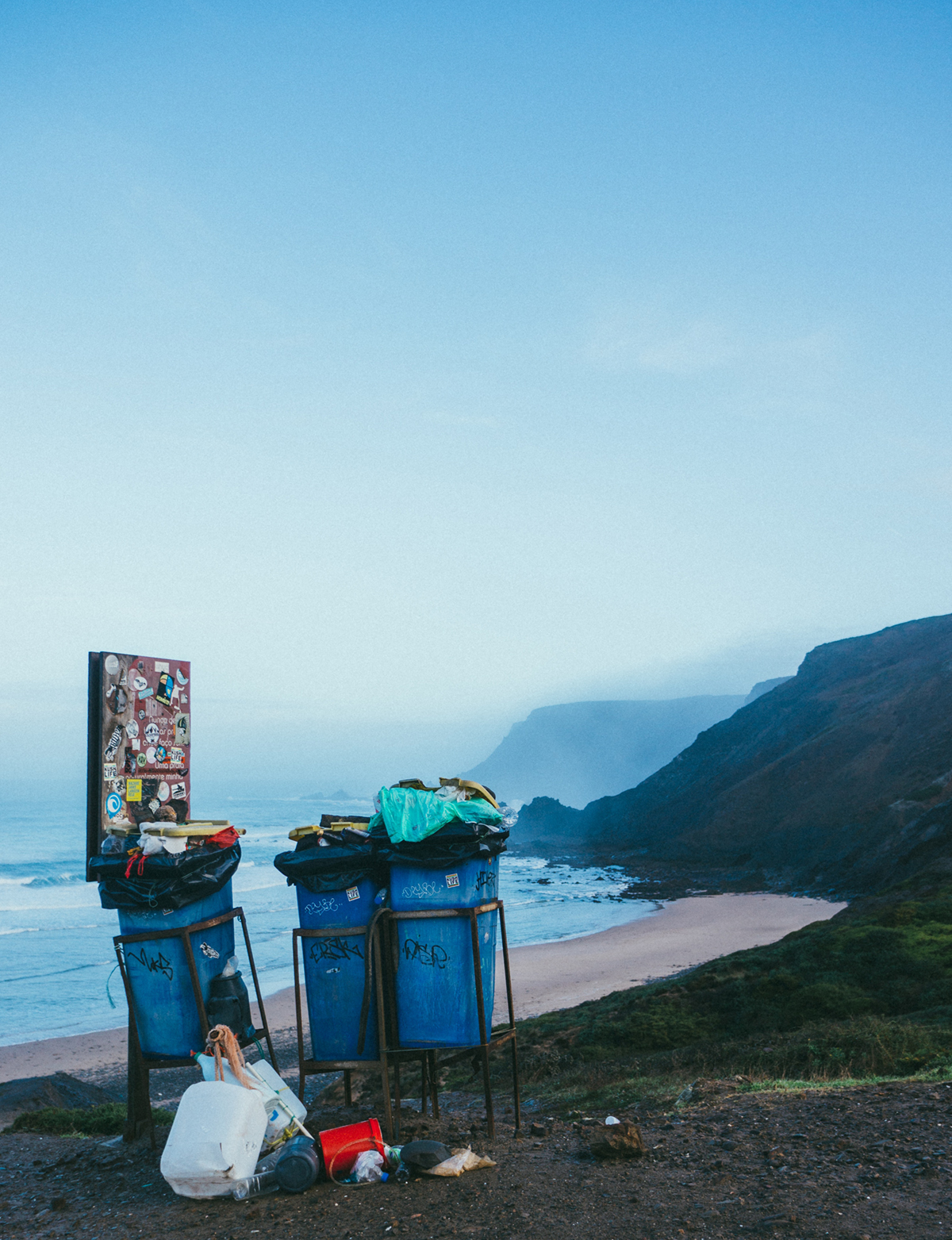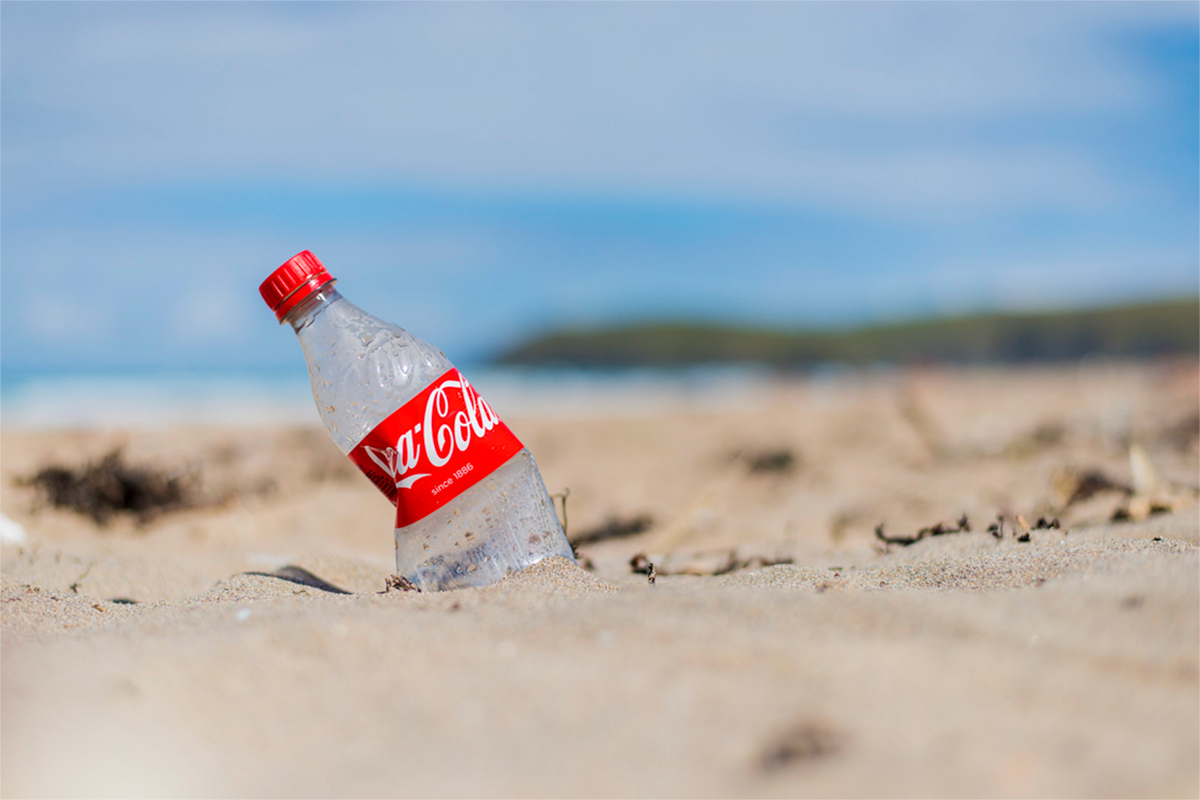
Research reveals Coca Cola and PepsiCo responsible for 25% of packaging pollution found on UK beaches
· The UK’s biggest ever UK packaging pollution brand survey has found a small number of parent companies are responsible for the majority of packaging pollution found on UK beaches and rivers
· Surfers Against Sewage has submitted the full data to government and calls for transparency from the UK’s biggest polluters to disclose the quantity of their plastic packaging production
· Photos of the brand audit beach cleans available here:
The UK’s biggest ever nation-wide survey of packaging pollution found on UK beaches and rivers has revealed that the vast majority of UK waste found strewn across the coastline is the responsibility of just a handful of companies – with Coca Cola and PepsiCo named the worst offenders.
The figures, unveiled by ocean conservation charity Surfers Against Sewage, have been submitted to government as campaigners call for transparency from the UK’s ‘biggest packaging polluters’.
It follows the UK’s largest ever nation-wide survey of packaging pollution found on Britain’s beaches and rivers, conducted by more than 45,000 volunteers during SAS’s recent Big Spring Beach Clean series.
· The full report is available here:
The results show that the vast majority of UK branded waste found strewn across the coastline is the responsibility of just a handful of parent companies, with 10 parent companies accounting for well over half the total number of items.
During the 229 cleans in April, 49,413 pieces of pollution were picked up, of which 20,045 were branded, with Coca Cola producing the largest proportion of branded items (15.5 per cent). PepsiCo made 10.3 per cent, followed by Mondelez International, which owns Cadbury, at 6.8%, McDonalds 6 per cent and Nestle 5.5%.
Hugo Tagholm, Chief Executive of Surfers Against Sewage says: ‘Our survey of packaging pollution on beaches and rivers clearly shows that big business is responsible for the scourge of plastic and packaging pollution.
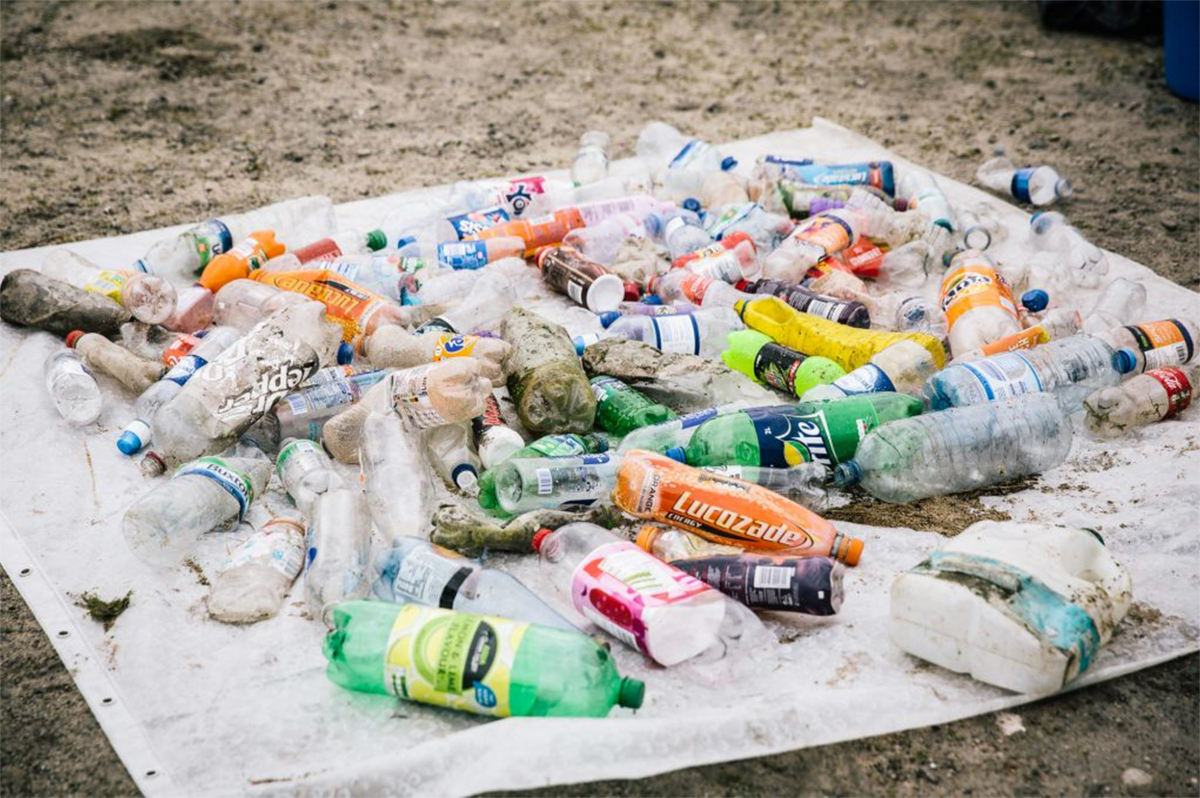
Just ten companies were responsible for over half of the packaging pollution recorded. These companies must invest more in the redesign of packaging, alternative ways of product delivery and ramping up packaging re-use to truly turn the tide on the plastic pollution that is sweeping our world.
People and planet need these companies to change how they do business. At the moment, the cost of this waste is left in the hands of local councils, tax payers and, finally, the environment.”
The research has been submitted to the UK government as evidence in the consultation underway on plastic packaging and Extended Producer Responsibility (EPR) in a bid to make producers (parent companies) take more responsibility for the costs of dealing with their packaging.
Under the present EPR guidelines, producers ‘that handle over 50 tonnes of packaging annually and have an annual turnover over £2 million’ should be accountable for the cost and system for dealing with the packaging they create and sell.
But, currently, parent companies do not share information on the quantity of packaging they produce, hiding the scale of their damage to the environment – and paying less than 10% of the costs of dealing with it. At the moment, the cost of dealing with this waste is left in the hands of local councils, tax payers and, finally, the environment. New EPR regulation will mean producers become accountable for 100% of these costs, but it is critical that there is transparency in regards to how much packaging is being produced, for new packaging responsibility regulation to be effective.
Hugo Tagholm said: “Producers must offer full transparency and disclosure on the amount and type of packaging they use in order that new extended producer regulation can be truly effective. Our environment is in peril and plastic pollution is a clear indicator that business as usual just won’t do.
“This is not a littering issue – business needs to provide radical and responsible new systems that drastically reduce their impact on our oceans, forests and nature at large.
The analysis of the information collected was undertaken by independent environmental consultancy Eunomia Research & Consulting.
Full information on the research and analysis methodology can be found here
The Top 10 Parent Companies (Branded Pollution Only)
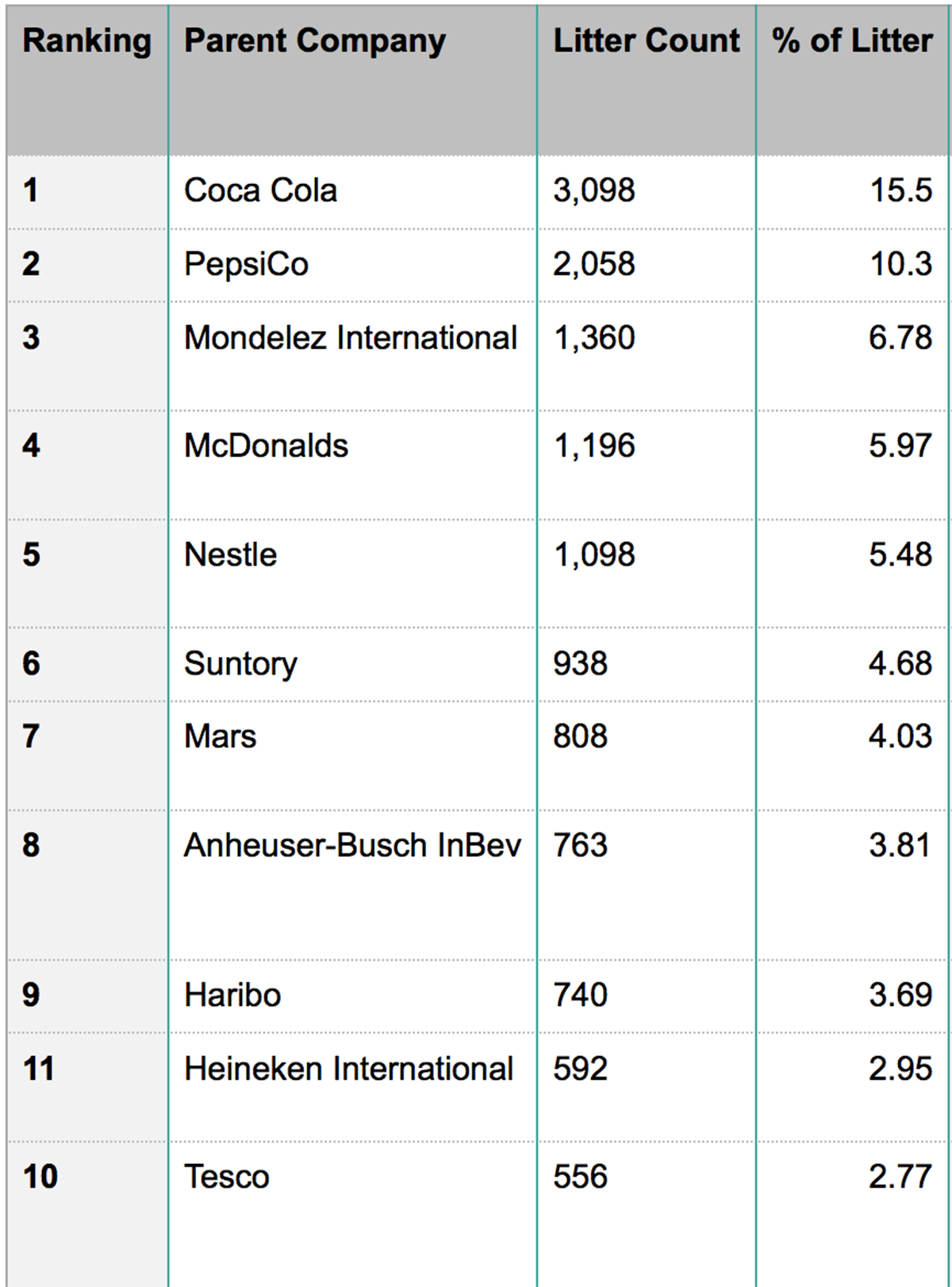
The Top 10 Brands (Branded Pollution Only)
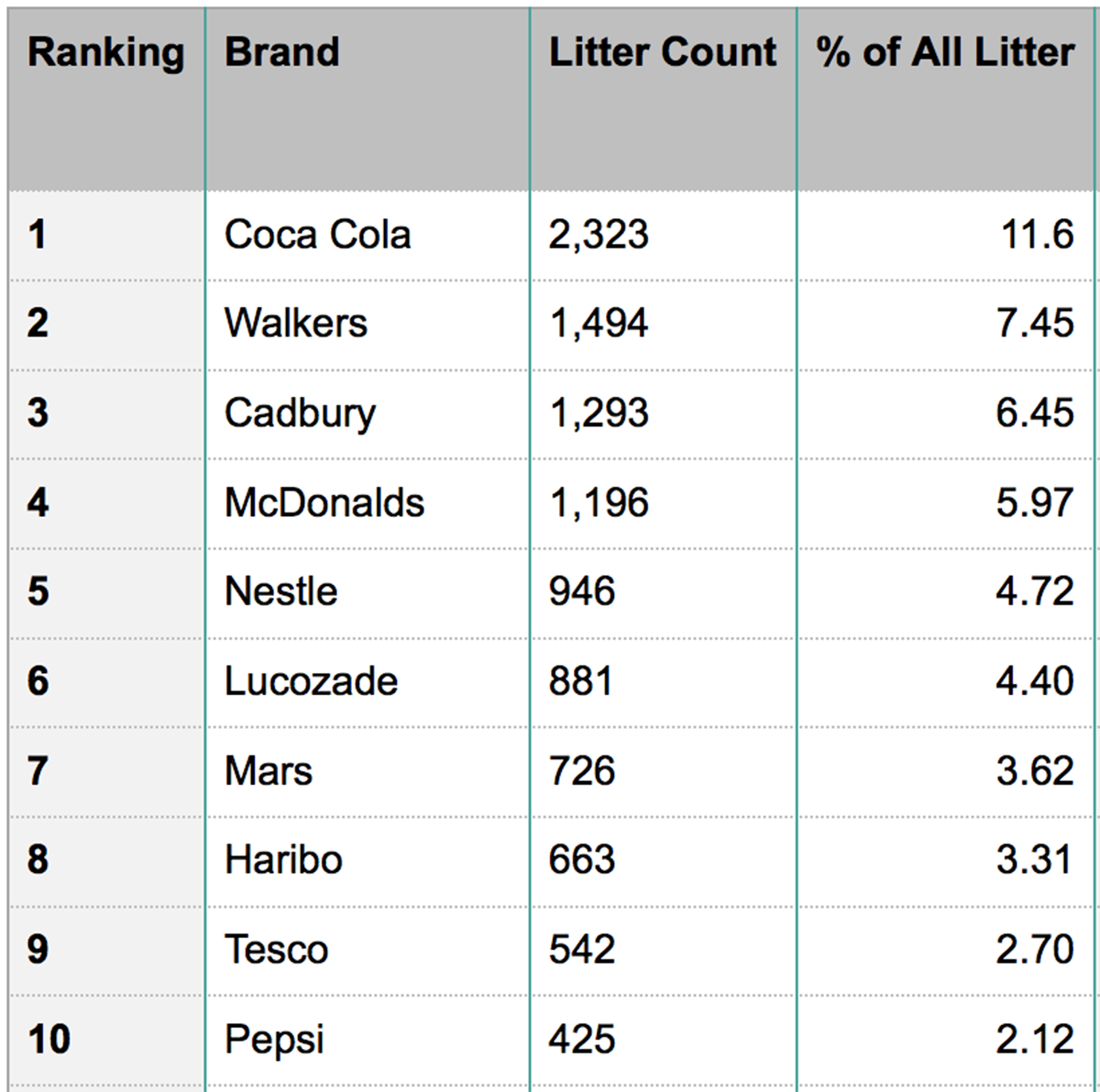
During the analysis, research was divided into two levels; firstly, the brand of the product, and, secondly, the parent company who owns the brand.
A total of 20,045 branded items were submitted over the course of the Big Spring Beach Clean campaign. 496 of the brands had only one or two items associated with them and were not mapped to their parent companies. The remaining 303 brands were mapped to a total of 171 parent companies, the top 50 of which accounted for 92% of the branded items.
While using citizen science as a method of data collection allows us to amass large amounts of data in a cost-effective manner, the data collected has some limitations associated with it owing to the lack of oversight regarding how data are collected and recorded. Inconsistencies in the data gathering process are an accepted characteristic of citizen science projects, and these can introduce an unavoidable level of uncertainty to collected data.
In Defra’s guidance, packaging is defined as ‘any material used to hold, protect, handle, deliver and present goods. This includes packaging for raw materials right through to finished goods to be sold or being sold.’
